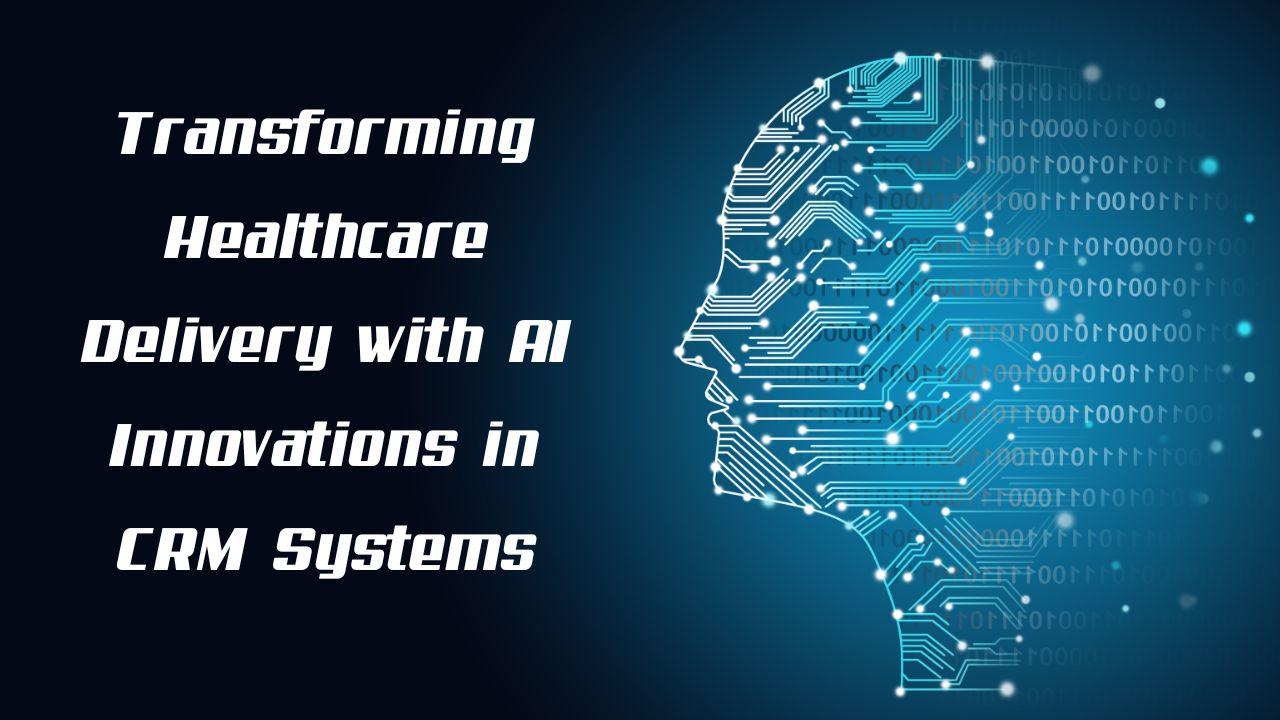In today’s healthcare landscape, healthcare delivery is being reimagined through the integration of Artificial Intelligence (AI) into Customer Relationship Management (CRM) systems. Based on Jaymin Harishkumar Sutarwala’s recent study, this article explores how AI innovations in CRM systems are shaping patient engagement, personalizing care, and enhancing operational efficiency. By combining machine learning, predictive analytics, and natural language processing, healthcare organizations can offer proactive, efficient, and personalized services to their patients.
The AI Revolution: Redefining Healthcare CRM for a Smarter Future
Healthcare CRM systems have evolved from mere data repositories into complex, intelligent platforms that manage every facet of patient interactions. These systems now facilitate everything from appointment scheduling and treatment tracking to comprehensive patient engagement, leveraging AI to extract actionable insights, improving patient care and optimizing operations.
Predictive Analytics: Anticipating Patient Needs
AI-driven predictive analytics is a breakthrough innovation. As highlighted in the study, machine learning algorithms now analyze patient data, identify patterns, and predict future health risks. This shift from reactive to proactive care enables early interventions and improves patient outcomes. Predictive models also help healthcare organizations allocate resources more effectively by anticipating demand, leading to enhanced healthcare delivery and optimized staffing.
Natural Language Processing: Enhancing Patient Communication
Natural Language Processing (NLP) is another key innovation in healthcare CRM systems transforming how patient communications are interpreted. NLP algorithms deciphers unstructured patient communications, such as emails and voice interactions, into actionable data that helps healthcare providers understand patient concerns and sentiments. AI-powered chatbots and virtual assistants, powered by NLP, are also transforming patient engagement, handling queries and providing personalized health advice, while enabling healthcare providers to offer timely responses and streamline communication.
Sentiment Analysis: Building Stronger Patient Relationships
Sentiment analysis helps healthcare organizations understand and improve patient experiences. By analyzing patient feedback from multiple sources, AI systems identify emotional indicators and satisfaction levels. These insights help healthcare organizations enhance patient interactions and improve retention by detecting emotional cues and offering more empathetic care. Monitoring sentiment also allows providers to identify patient dissatisfaction early, leading to better patient retention strategies and improved long-term relationships with patients.
Overcoming Integration Challenges: Ensuring Smooth Adoption
While the benefits of AI-powered CRM systems are clear, implementing them does come with challenges. Integrating AI with existing healthcare systems requires careful planning, updates to legacy systems, comprehensive staff training, and strategies to overcome resistance to technological change for successful adoption. Despite these challenges, the long-term benefits, such as improved patient care and cost savings, make the transition a worthwhile investment.
Ethical Considerations: Balancing Innovation with Privacy
Integrating AI demands rigorous ethical oversight and robust privacy safeguards. Healthcare organizations must implement strict data protection protocols, ensure transparent AI decision-making, and design algorithms to minimize bias and uphold HIPAA regulations. Protecting patient privacy while leveraging AI for better outcomes requires robust security measures and strict adherence to ethical standards, fostering trust and ensuring patient safety.
Looking Ahead: The Future of AI in Healthcare CRM
The future of AI in healthcare CRM systems is promising. As AI technologies continue to evolve, they will further enhance patient care and streamline healthcare operations. Future developments will focus on explainable AI (XAI), making AI decision-making processes more transparent. Collaboration among healthcare providers, technology developers, and researchers will drive these advancements, creating more personalized, efficient healthcare delivery models.
In conclusion, AI’s integration into healthcare CRM systems marks a significant step forward in improving patient care and operational efficiency. Innovations like predictive analytics, NLP, and sentiment analysis are transforming patient interactions and healthcare delivery. However, successful implementation hinges on addressing integration challenges, ensuring privacy and security, and upholding ethical standards. As these technologies evolve, the healthcare industry is poised to offer more personalized, proactive care, benefiting both patients and providers. Jaymin Harishkumar Sutarwala’s work underscores that this technological evolution is not merely an upgrade—it is a transformative force that will continue to drive personalized, proactive care and will need continued research and collaboration to advance these innovations.



































